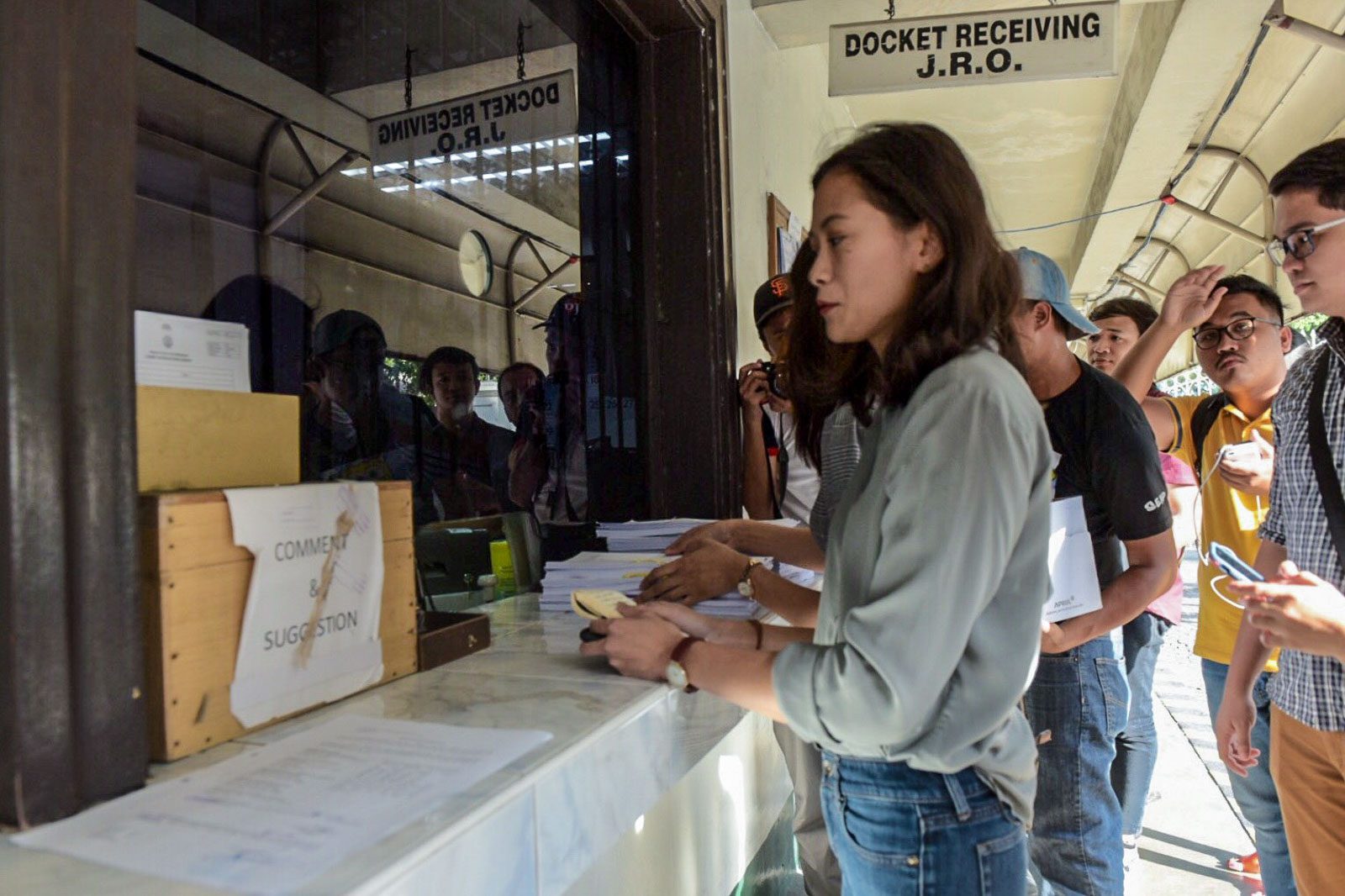SUMMARY
This is AI generated summarization, which may have errors. For context, always refer to the full article.

MANILA, Philippines – The Office of the President (OP) told the Supreme Court that the basis for banning Rappler and its reporters from presidential coverages was the Securities and Exchange Commission (SEC) ruling that ordered the closure of the news company.
The Court of Appeals has remanded the case to the SEC for further review. The SEC has not come out with further actions.
“Following the SEC Decision, the International Press Center (IPC) denied Pia Ranada’s application for renewal of accreditation…Rappler simply failed to meet these accreditation requirements, hence, the non-renewal of its (or Ranada’s) accreditation to cover Malacañang,” the Office of the Solicitor General (OSG) said in a press statement on Thursday, September 26, quoting its and OP’s official response to the Supreme Court.
The IPC is an office under the Presidential Communications Operations Office (PCOO) that typically processes accreditations for foreign journalists coming to the Philippines. It’s also the office that prints IDs for the Malacañang Press Corps (MPC).
Rappler’s Malacañang reporter Pia Ranada remains a member of the MPC.
Before the official comment to the Supreme Court, Malacañang and President Rodrigo Duterte have provided varying reasons for banning Rappler from presidential events. Like many Duterte orders, there is no written memorandum for the ban.
In a speech, Duterte said he was banning Rappler over supposedly false reporting.
Freedom of the press
Rappler, Ranada, and various other reporters of the news outfit filed a petition before the SC seeking to declare the ban unconstitutional for violating freedom of speech.
The SC has also allowed journalists from various media organizations, who are not affected by the ban, to join the case as intervenors.
In its reply, the OP said it is mainly enforcing accreditation rules.
“The mere act of the government enforcing its accreditation rules does not, in any way, affect or trample upon petitioners’ constitutional freedom of the press. This constitutional right does not certainly include the right to demand a special press pass, special accreditation, or special spot at any news conference or press briefing,” the OP said.
The OP said that Rappler’s petition “miserably failed to present any genuine issue on the alleged abridgment of free press.”
A significant press freedom test case under the Duterte administration, the Rappler petition argued that the coverage ban violates constitutional guarantees of a free press, free speech, equal protection, and due process.
The lack of a written memo also makes the ban arbitrary and could be used against other journalists in the future, if not stopped by the Supreme Court, the petition said. – Rappler.com
Add a comment
How does this make you feel?
There are no comments yet. Add your comment to start the conversation.